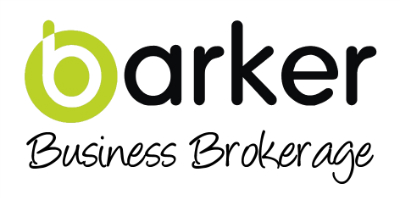Geoff Mackenzie Business Broker


Geoff Mackenzie
Licensed Salesperson - REAA 2008
Ph: 029 993 5008
Barker Business
Brokerage
36 Tarndale Grove,
Rosedale, Auckland
Preparing To Sell Your Business
Selling a business is never an easy or simple process. However, the rewards can be great, and ultimately, life-changing; so if you do decide to sell there are several key issues you need to be aware of that will help you maximize your chances of success. Getting it wrong before you start can ruin any hopes of a sale and can mean many months of your time wasted. Potential experienced buyers will see straight through the flaws in the business you are selling and will quickly pass over your offering if they see any red flags.
Buyers won’t pay more for potential
We regularly speak to business owners who believe they have a potential gold mine and expect to command a high selling price based on perceived potential alone. This isn’t how it works. If a business is simply a concept without a proven revenue stream then there isn’t any value in the eyes of the vast majority of potential buyers. The business must be priced correctly as buyers look at many businesses before deciding on a purchase - and they want value for money.
Buyers are interested in profits, not revenue
Another common misconception is that buyers are impressed with revenue figures. Sure, they can sound good, but when it comes down to it the only number that matters is the Profit or Cash Surplus to a working owner that a business makes.
Buyers expect verifiable financial claims. If you are going to claim revenue from a specific source, you need to have verifiable proof. It is very difficult to claim cash that you have put in your pocket.
Don’t live in the past
The previous success of a business is largely irrelevant at the time of sale, especially if it has been struggling lately. Buyers are interested in recent performance (usually the last 12 months) and future sustainability and viability, especially if you operate in a dynamic space (such as with websites). We commonly hear sellers talk about how successful their business was in the past. They say “the business has suffered after a recent drop and all it needs is a little work to get it back on track”.
Unfortunately, buyers don’t see it this way. They aren’t interested in fixing and recovering your business, especially if you are expecting them to pay a premium. However, don’t be afraid to show previous years if the business has been growing steadily. Buyers love to see growing revenue and profit figures, especially if you have already made future plans for the business that seem realistic based on past performance.
Have a good reason for selling
The first question a buyer usually asks is “How much?” – the second question is “Why are they selling?”
This is why a logical explanation is required
Honesty is the best policy
The truth is always going to surface, so be upfront about everything from the beginning. Experienced investors understand that every business is going to have positives and negatives. There is no such thing as a perfect business. If you are honest and transparent from the start there is less risk of a deal going sour because the buyer uncovered something during due diligence that wasn’t accurate, or an instance where the truth was stretched. Honesty is the best policy in all business transactions and selling any business is no different. Avoid surprises, as surprises will destroys the buyers trust and the buyer will run, not walk, to another opportunity.
Never judge a buyer
You never know whom you are dealing with or the buying power they possess. Someone asking what appears to be a simple question could potentially be a buyer that is new to the specific industry and has deep pockets for investing. Experienced buyers will often hammer the seller with questions in an attempt to turn up inconsistencies and red flags.
Non – Competition
All Directors/ Shareholders will be required to sign a non-competitive clause that they will not compete in the same industry
Assets
Buyers will want to know exactly what they are buying before they make an offer. A complete list of assets is required.
Keep your business well maintained
Do not decide that as I am going to sell I will step back. Keep your business humming and make sure it is clean and appealing.
Prepare your landlord for a sale
Landlords can be deal killers. Buyers need to know if the lease will be assigned or a new lease needs to be negotiated.
Tips to ensure that you obtain top dollar for your business
First impressions count therefore the state your business is in when it comes to the market for the first time can greatly affect the price that is achieved. In an ideal world you should prepare for the sale of your business the day you buy or start your business.
The sale of your business should be a team effort between you, your broker, your accountant and your solicitor.
Key Issues
- Have enough time to start the process
- Be serious about the sale and treat it as a special project
- We have to make the process as easy as possible for the buyer
- Identify any issues the business has and address them. Have explanations ready and keep them consistent
- Identify the value drivers of your business and make sure they are sustainable
- Identify possible future value drivers that a new owner can exploit
Financial
- Remove all non-business assets and liabilities from the business and the business accounts
- Complete a list of fixed assets that are going to be part of the business sale
- Complete a list of Intangible assets. E.g. goodwill, intellectual property, rights, relationships (We can assist with this)
- Clean up stock lists and dispose of obsolete stock
- Clean up accounts receivable by writing off bad debts and keep your debtors ledger up to date
- Ensure all sales go through the business books
- Remove all non-essential business expenditure from your accounts.
Premises
- Spring clean and keep your premises in a clean and tidy condition
- Ensure you have a copy of your lease and that it is transferrable
- Keep work flow areas clutter free and neat and tidy
- If possible have the operation documented (Manuals)
Employees & Contractors
- Ensure all contracts are up to date, signed and on file
- Employee files are up to date, leave, reviews etc.
- Make sure staffing numbers are correct
- Identify and secure key employees
- Decrease reliance on yourself e.g. train staff or promote a General Manager
Customers & Suppliers
- Update all agreements and secure agreements with essential clients
- Where possible ensure agreements are transferrable
- Reduce reliance on one or a few customers/suppliers where possible
Pre-sale Review
- Step back and have a fresh look at your business through the eyes of a buyer.
- We will assist you to present your business in the best possible way to enable us to achieve the best possible price for you on today’s market
